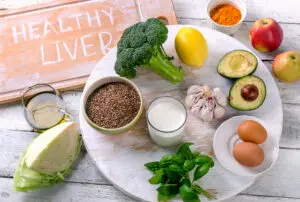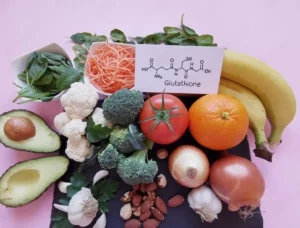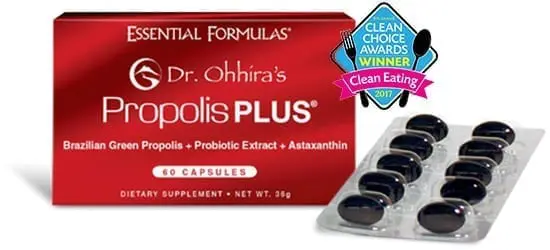ARTICLE SOURCE: https://primewomen.com/health/wellness/women-taking-probiotic-supplements/
Prime Women
August 21, 2018
Bacteria is sometimes believed to be a “dirty word.” Antibacterial hand sanitizer sits in every classroom across America. Antibacterial wipes are routinely used for cleaning hard surfaces. Antibacterial ointments are regularly applied to cuts and scrapes to prevent infection. It’s no secret that certain types of bacteria can cause infection in the body, but we often take for granted that there are millions of “good bacteria” that we rely on everyday to keep us healthy.
Bacteria, the Gut and Your Health
Your stomach and intestines, also known as your gut, are more than just the place where food is digested. They are the key to your entire immune system. Researchers at Johns Hopkins University have not only linked the bacterial composition in your stomach and intestines to several diseases, they have proven that certain organisms living in your gut produce massive amounts of antibodies that protect your body from infection. Other studies have solidified the role your gut plays in your health proving that more than 70 percent of your immune system lives right in your digestive tract. A gut flush with “good bacteria” equals a healthy immune system, yet the balance of bacteria is under constant attack.
Leaky Gut Syndrome and Disease
The lining of your intestines has more than 4,000 square feet of surface. When it works well, this lining controls the bacteria level inside of your gut and what nutrients are absorbed into your bloodstream for use. Unfortunately, disease, antibiotics, and chronic malnutrition can cause large cracks or holes to form in the lining of your intestines letting toxins (not to mention partially digested food) into the tissues underneath. This “leaky gut” trigger inflammation and changes the make up of the necessary bacteria inside of your digestive system. As a result, you may experience digestive problems such as constipation, irritable bowel syndrome or acid reflux.
However bothersome digestive problems may be, they are not the end of the potential diseases associated with a leaky gut. Johns Hopkins has connected gut health to colon cancer, tuberculosis and inflammatory bowel disease. Harvard scientists have linked a leaky gut to autoimmune diseases including celiac disease, Type I diabetes, osteoarthritis, and fibromyalgia.
Healthy Gut = Healthy Brain
Perhaps the most intriguing link is between your digestive system and your mental health. Researchers have discovered what they call the gut-brain axis or a connection between how your gut functions and the way your brain works. While a healthy gut equates to a healthy immune system, it can also help the central nervous system (CNS) to run more efficiently. Among the biggest roles the CNS plays in the body are the regulation of the body’s autonomic functions such as heart rate, blood pressure, respiration, and hormone and neurotransmitter secretion. Hormones and neurotransmitters play a significant role in the way your brain functions. Imbalances in these chemicals can cause anxiety and depression and have been linked to several disorders such as autism and schizophrenia.
So, how can bacteria in the gut affect the brain? It all comes down to what the bacteria actually do – that is, they produce literally hundreds of micronutrients that become the precursors or affect the functions of the hormones, neurotransmission chemicals and even immune cells. These micronutrients are often called “postbiotics.” They are picked up from the gut and carried by the circulatory system throughout the body and into the brain where they can have profound beneficial effects.
Probiotics for Men and Women
Researchers in Sweden recently confirmed what renowned scientist Dr. Iichiroh Ohhira of Essential Formulas discovered more than a decade ago. Women who routinely take probiotics for gut health experience less bone loss than women who do not. For years, doctors have recommended taking probiotic supplements in combination with antibiotics to replenish the supply of good bacteria in the gut that are often killed by broad spectrum drugs. Marketers do a fantastic job gearing probiotic products such as yogurt, kombucha, fermented foods, and probiotic supplements to women who are looking to improve their health, fight off the inflammatory effects of aging and decrease symptoms of anxiety and depression.
What about probiotics for men?
Reports have shown that women over the age of 50 say that their husbands are experiencing more gastrointestinal problems, more anxiety, more depression, more insomnia, and more inflammation than they are. However, they are reluctant to address these issues, choosing to blame them on work, stress, money problems, or other external forces. Probiotics for men could help or even cure many of the physical and mental health conditions that plague men of this age.
Simple Changes to do Together
Fortunately, making the decision to include probiotics in your lifestyle is simple and easy to share with your spouse or loved one.
- Incorporate high quality once-daily probiotic supplements like Essential Formulas.
- Take up gardening as a hobby you can do together that will also lead to better gut health. Massive increases in hormones, antibiotics, pesticides, and insecticides in the foods we eat have dramatically reduced their nutritional value. Adding a small container garden to your home or backyard can help increase the nutrient density in the food you eat while introducing helpful microbes into your diet from organic dirt and compost.
- Eat more fermented foods or foods such as yogurt made from natural bacteria as a part of your regular diet.
- Replace your second cup of coffee with kombucha or kefir.
- Have a cheese plate! Raw and unpasteurized cheeses, brine cured olives and salted gherkin pickles are all great sources of probiotics. Serve with miso soup and you have a gut healthy meal!
The benefits of probiotics for men and women are significant. Your health and the health of your spouse or partner depends on actively managing your gut health. Including Essential Formulas probiotic supplements in your diet can improve not only your digestion, but also your overall physical and mental health and that of your family.
ARTICLE SOURCE: https://primewomen.com/health/wellness/women-taking-probiotic-supplements/
Prime Women
August 21, 2018
Probiotics Aren’t Just for Women
Bacteria is sometimes believed to be a “dirty word.” Antibacterial hand sanitizer sits in every classroom across America. Antibacterial wipes are routinely used for cleaning hard surfaces. Antibacterial ointments are regularly applied to cuts and scrapes to prevent infection. It’s no secret that certain types of bacteria can cause infection in the body, but we often take for granted that there are millions of “good bacteria” that we rely on everyday to keep us healthy.
Bacteria, the Gut and Your Health
Your stomach and intestines, also known as your gut, are more than just the place where food is digested. They are the key to your entire immune system. Researchers at Johns Hopkins University have not only linked the bacterial composition in your stomach and intestines to several diseases, they have proven that certain organisms living in your gut produce massive amounts of antibodies that protect your body from infection. Other studies have solidified the role your gut plays in your health proving that more than 70 percent of your immune system lives right in your digestive tract. A gut flush with “good bacteria” equals a healthy immune system, yet the balance of bacteria is under constant attack.
Leaky Gut Syndrome and Disease
The lining of your intestines has more than 4,000 square feet of surface. When it works well, this lining controls the bacteria level inside of your gut and what nutrients are absorbed into your bloodstream for use. Unfortunately, disease, antibiotics, and chronic malnutrition can cause large cracks or holes to form in the lining of your intestines letting toxins (not to mention partially digested food) into the tissues underneath. This “leaky gut” trigger inflammation and changes the make up of the necessary bacteria inside of your digestive system. As a result, you may experience digestive problems such as constipation, irritable bowel syndrome or acid reflux.
However bothersome digestive problems may be, they are not the end of the potential diseases associated with a leaky gut. Johns Hopkins has connected gut health to colon cancer, tuberculosis and inflammatory bowel disease. Harvard scientists have linked a leaky gut to autoimmune diseases including celiac disease, Type I diabetes, osteoarthritis, and fibromyalgia.
Healthy Gut = Healthy Brain
Perhaps the most intriguing link is between your digestive system and your mental health. Researchers have discovered what they call the gut-brain axis or a connection between how your gut functions and the way your brain works. While a healthy gut equates to a healthy immune system, it can also help the central nervous system (CNS) to run more efficiently. Among the biggest roles the CNS plays in the body are the regulation of the body’s autonomic functions such as heart rate, blood pressure, respiration, and hormone and neurotransmitter secretion. Hormones and neurotransmitters play a significant role in the way your brain functions. Imbalances in these chemicals can cause anxiety and depression and have been linked to several disorders such as autism and schizophrenia.
So, how can bacteria in the gut affect the brain? It all comes down to what the bacteria actually do – that is, they produce literally hundreds of micronutrients that become the precursors or affect the functions of the hormones, neurotransmission chemicals and even immune cells. These micronutrients are often called “postbiotics.” They are picked up from the gut and carried by the circulatory system throughout the body and into the brain where they can have profound beneficial effects.
Probiotics for Men and Women
Researchers in Sweden recently confirmed what renowned scientist Dr. Iichiroh Ohhira of Essential Formulas discovered more than a decade ago. Women who routinely take probiotics for gut health experience less bone loss than women who do not. For years, doctors have recommended taking probiotic supplements in combination with antibiotics to replenish the supply of good bacteria in the gut that are often killed by broad spectrum drugs. Marketers do a fantastic job gearing probiotic products such as yogurt, kombucha, fermented foods, and probiotic supplements to women who are looking to improve their health, fight off the inflammatory effects of aging and decrease symptoms of anxiety and depression.
What about probiotics for men?
Reports have shown that women over the age of 50 say that their husbands are experiencing more gastrointestinal problems, more anxiety, more depression, more insomnia, and more inflammation than they are. However, they are reluctant to address these issues, choosing to blame them on work, stress, money problems, or other external forces. Probiotics for men could help or even cure many of the physical and mental health conditions that plague men of this age.
Simple Changes to do Together
Fortunately, making the decision to include probiotics in your lifestyle is simple and easy to share with your spouse or loved one.
- Incorporate high quality once-daily probiotic supplements like Essential Formulas.
- Take up gardening as a hobby you can do together that will also lead to better gut health. Massive increases in hormones, antibiotics, pesticides, and insecticides in the foods we eat have dramatically reduced their nutritional value. Adding a small container garden to your home or backyard can help increase the nutrient density in the food you eat while introducing helpful microbes into your diet from organic dirt and compost.
- Eat more fermented foods or foods such as yogurt made from natural bacteria as a part of your regular diet.
- Replace your second cup of coffee with kombucha or kefir.
- Have a cheese plate! Raw and unpasteurized cheeses, brine cured olives and salted gherkin pickles are all great sources of probiotics. Serve with miso soup and you have a gut healthy meal!
The benefits of probiotics for men and women are significant. Your health and the health of your spouse or partner depends on actively managing your gut health. Including Essential Formulas probiotic supplements in your diet can improve not only your digestion, but also your overall physical and mental health and that of your family.






